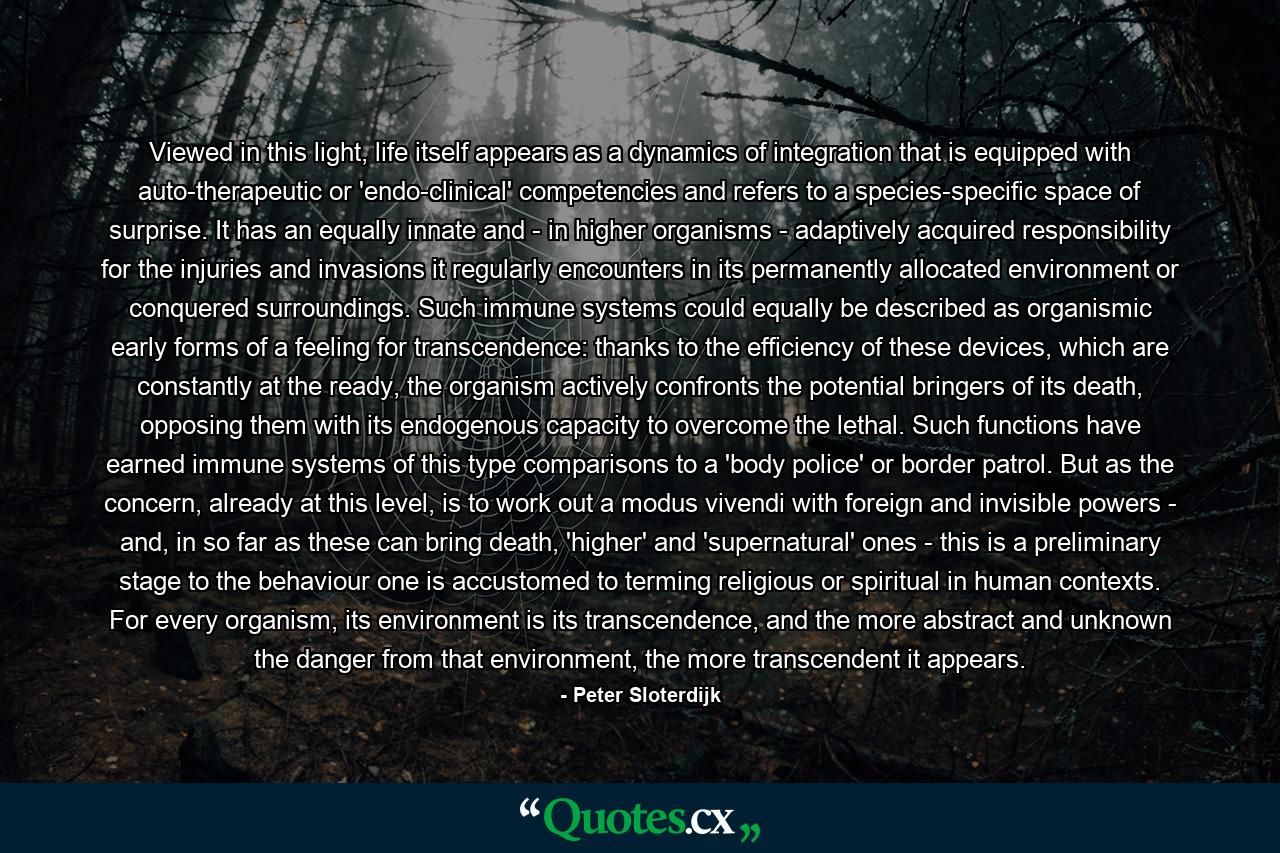Viewed in this light, life itself appears as a dynamics of integration that is equipped with auto-therapeutic or ‘endo-clinical’ competencies and refers to a species-specific space of surprise. It has an equally innate and – in higher organisms – adaptively acquired responsibility for the injuries and invasions it regularly encounters in its permanently allocated environment or conquered surroundings. Such immune systems could equally be described as organismic early forms of a feeling for transcendence: thanks to the efficiency of these devices, which are constantly at the ready, the organism actively confronts the potential bringers of its death, opposing them with its endogenous capacity to overcome the lethal. Such functions have earned immune systems of this type comparisons to a ‘body police’ or border patrol. But as the concern, already at this level, is to work out a modus vivendi with foreign and invisible powers – and, in so far as these can bring death, ‘higher’ and ‘supernatural’ ones – this is a preliminary stage to the behaviour one is accustomed to terming religious or spiritual in human contexts. For every organism, its environment is its transcendence, and the more abstract and unknown the danger from that environment, the more transcendent it appears.
